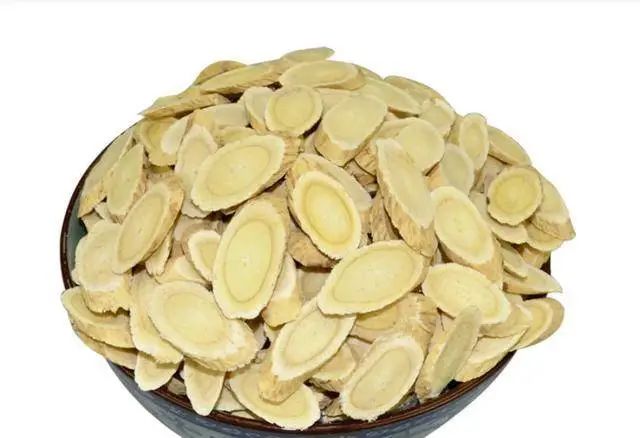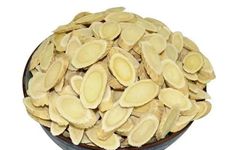Astragalus, historically also written as “Huang Qi”.

The term “Qi” represents the elder; one can only be called “Qi” after reaching the age of sixty. Thus, Astragalus in Traditional Chinese Medicine (TCM) resembles a venerable elder, whose effects, though subtle, are significant, making it a favored herb among physicians throughout history.
Today, let us discuss the benefits of Astragalus.
Of course, the following is just a brief introduction; the benefits of Astragalus extend far beyond these.
1. Astragalus can supplement Qi, making it a blessing for those with deficiency
Li Shizhen in the “Compendium of Materia Medica” stated that Astragalus is the “primary herb for Qi supplementation.”
While Astragalus’s Qi supplementation is not as potent as that of ginseng, its gentle nature makes it less likely to cause excessive supplementation, allowing most individuals with deficiency to use it safely.
Those who often feel fatigued, lack energy, are taciturn, or have a weak voice can benefit from drinking Astragalus-infused water. Additionally, when feeling exhausted from work or physical labor, consuming Astragalus tea can quickly alleviate symptoms.
For individuals with both Qi and blood deficiency, adding some Dang Gui (Angelica Sinensis) can enhance the effect. The combination of Astragalus and Dang Gui in a 5:1 ratio is known as Dang Gui Bu Xue Tang (Dang Gui Blood Supplement Decoction), a well-known formula in TCM.
2. Astragalus can reduce edema
Edema indicates the retention of fluid. Individuals with Qi deficiency or those with urinary obstruction are particularly prone to edema.
Firstly, Qi deficiency leads to stagnation of fluids; in TCM, it is said that when Qi flows, water flows; when Qi stagnates, water stagnates. If there is an issue with the flow of Qi, the movement of water will also be hindered, resulting in edema. Secondly, urinary obstruction causes waste fluids to accumulate in the body, especially in the lower limbs, leading to swelling.
Astragalus can replenish Qi, allowing stagnant fluids to flow again and promoting diuresis. After consuming it, urination will increase, helping to expel excess fluids. Furthermore, Astragalus strengthens the spleen, which plays a role in the transformation and transportation of fluids.
In the late Qing dynasty, physician Lu Dingpu recorded a case in the book “Cold Chamber Medical Talks”, where a woman experienced severe abdominal distension after childbirth. Common doctors recognized it as edema and prescribed diuretic and Qi-moving herbs, but her condition worsened. Upon checking her pulse, it was found to be weak, indicating typical Qi deficiency with fluid stagnation. Therefore, Astragalus was used to both replenish deficiency and promote diuresis. By the fifth day, the swelling subsided, and her pulse became stronger.
3. Astragalus can enhance immunity
In modern medicine, immunity is referred to as Zheng Qi (Upright Qi) in TCM. When Zheng Qi is sufficient, one is less prone to illness; when it is deficient, external pathogens such as wind, cold, heat, dampness, dryness, and fire can easily invade, leading to various ailments.
The “Inner Canon of Huangdi” mentions that when Zheng Qi is present, evil cannot invade.
So how does this “Zheng Qi” protect the body from external pathogens? Firstly, it deploys a defense force to the body’s surface, forming a layer of Qi known as Wei Qi (Defensive Qi). If we compare the body to a city, Wei Qi acts as the guards; upon detecting any invading pathogens, they immediately drive them away.
Some individuals catch colds at the slightest drop in temperature or develop rhinitis with seasonal changes, indicating that their defensive forces have weakened, a condition known as Wei Qi instability in TCM, which allows external pathogens to invade.
Wei Qi is primarily derived from the transformation of the spleen and stomach, distributed throughout the body by the lungs. Astragalus greatly tonifies the Qi of the spleen and lungs, thereby replenishing the body’s Zheng Qi and enhancing immunity.
4. Astragalus can alleviate dryness
When the abdominal Qi transformation function is insufficient, the ingested water cannot be utilized effectively, leading to a feeling of dryness.
This is akin to having a pot of water on the stove; if the fire is not lit, the water remains unchanged. However, if a small fire is lit beneath the pot, the water gradually heats up, boils, and produces steam, which rises and moistens the lid—this is the result of Qi transforming fluids.
Those who often feel dry in the mouth, throat, or skin, regardless of how much water they drink, can benefit from Astragalus tea, possibly combined with some Shan Yao (Chinese Yam).
5. Astragalus can stop sweating, particularly for Qi deficiency-induced spontaneous sweating
In TCM, excessive sweating is categorized into two types: night sweats and spontaneous sweating.
Simply put, night sweats occur during sleep, while spontaneous sweating occurs during the day without heat or intense exercise, but sweat continues to flow uncontrollably.
Both night sweats and spontaneous sweating are due to deficiency; night sweats are caused by Yin deficiency, while spontaneous sweating is due to Qi deficiency. Astragalus is particularly suitable for spontaneous sweating due to Qi deficiency.
As mentioned earlier, there is a layer of Qi on the body’s surface that protects against external pathogens and regulates the opening and closing of pores. When Qi is deficient, this function is compromised, leading to open pores and excessive sweating. Astragalus tonifies Qi and stabilizes the exterior, allowing pores to open and close appropriately, thus preventing excessive sweating.
6. Astragalus promotes wound healing and tissue regeneration
When there are wounds on the skin that are slow to heal, Astragalus can be sought for its ability to promote healing and tissue regeneration.
Whether the wound is ulcerated or not, Astragalus can be used.
Why does it have this effect? Because Astragalus tonifies spleen Qi, and the spleen governs the muscles; the quality of muscle regeneration relies on the spleen and stomach. When the spleen and stomach are strong, they can effectively promote regeneration.
Astragalus tea is typically consumed at a dosage of around 10 grams, which can be steeped multiple times until the flavor diminishes. There are also modern preparations available, such as Astragalus granules or Astragalus oral liquid.
However, while Astragalus is beneficial, it should be noted that it is not suitable for the following conditions:
Individuals with heat conditions, such as Yin deficiency with internal heat, damp-heat, etc.; those with Qi stagnation; individuals with food stagnation should avoid it. The “Compendium of Materia Medica” states: “Astragalus can severely stagnate the appetite; those with chest and stomach fullness or intestinal stagnation should not use it.” It is also not advisable to use during colds, fevers, menstruation, or pregnancy.

Note:This account aims to promote TCM culture; the TCM knowledge mentioned in this article is for learning and exchange purposes only.
WeChat has been updated! If you neither star me nor have liked or “viewed” my articles, the system will assume you do not wish to receive information about herbal knowledge, and ultimatelyyou will not receive our article updates
End of article. Thank you for your patience in reading. If you find it helpful, please click “ Like” and “
Like” and “ View” at the bottom~
View” at the bottom~

